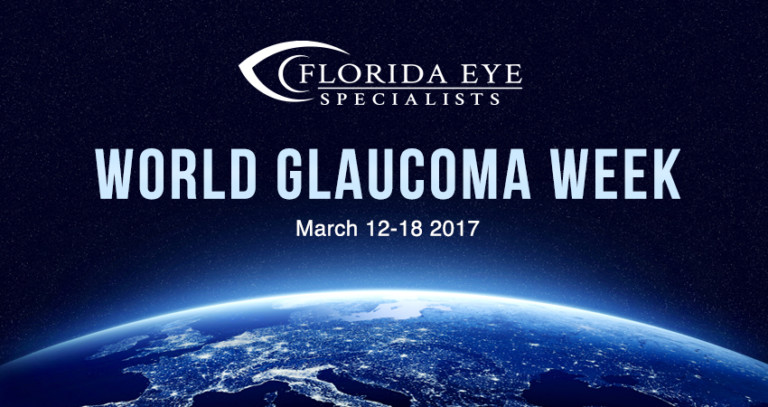The annual World Glaucoma Week will take place from March 12—18, 2017, and its goal is to raise awareness of the prevalence of glaucoma, and the various symptoms and risk factors associated with the disease.
Glaucoma Facts
The term glaucoma actually doesn’t refer to one specific disease, but rather a group of eye diseases that result in optic nerve damage. If this nerve damage goes untreated, it can lead to irreparable eye problems such as eventual blindness. Open-angle glaucoma is easily the most popular form of the disease, and approximately 3 million Americans are currently suffering from this variation. Acute glaucoma and normal-tension glaucoma round out the most prevalent forms of the disease.
One of the main reasons that Open-angle glaucoma is so worrisome is that the symptoms are often not noticed in many patients. This increases the chances that those affected by the disease will not receive treatment in time to prevent permanent eye damage. According to some estimates, nearly 50% of the people in the United States who are currently living with glaucoma may not even be aware that they have it.
Why World Glaucoma Week?
When you consider all of these facts, it makes perfect sense why World Glaucoma Week is such an important initiative for eye health professionals across the globe. Experts estimate that the number of patients living with glaucoma worldwide will increase to 76 million by the year 2020, so it’s more important than ever to raise awareness of these devastating diseases and provide people with the resources they need to seek treatment as soon as possible. The various forms of glaucoma are among the most impactful eye-related diseases around the world, and the more people understand about the symptoms and risk factors, the better prepared they will be in the future.
What World Glaucoma Week Means
You can use World Glaucoma Week as an opportunity to evaluate your own eye health, and investigate treatment options if necessary. Despite the fact that many glaucoma patients do not experience any significant symptoms, it’s still worth paying attention to many of the warning signs, including blurred vision, hazy vision, intense head or eye pain, nausea, or colored rings surrounding bright lights.
Even if you have no symptoms, knowing the risk factors can be the key for early detection of glaucoma. Some of the most prominent risk factors include:
- Family prevalence of vision loss
- Increased risk for those over 60
- Previous eye injuries
- Increased risk for African-Americans and older Hispanics
If you have experienced any of the typical symptoms associated with glaucoma, or if you’re concerned about your own risk factors, don’t wait until next year’s World Glaucoma Week to schedule a consultation with Florida Eye Specialists. Our eye health professionals specialize in numerous innovative glaucoma treatments, and can help you detect glaucoma cases early to best preserve your vision.

